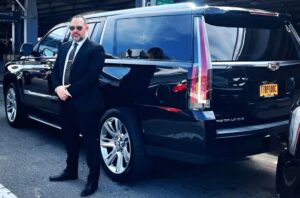
Several companies are facing lawsuits over safety issues at their parks. Some of them are Sky Zone and Off the Wall. Others have been slammed by local officials, including New Jersey’s governor and the mayor of Orland Park, Illinois. In this article, we take a look at some of the major companies facing lawsuits. We also discuss how these companies have responded to these lawsuits. You may be surprised to learn that they settled out of court with several plaintiffs.
Sky Zone
There are many different kinds of Sky Zone trampoline lawsuits. Several of these lawsuits claim that a company’s failure to maintain its equipment has resulted in injuries or death. One such lawsuit claims that a trampoline park’s safety is at risk if customers fail to wear appropriate clothing. One case involves a 12-year-old boy who died after jumping off a trampoline.
In the first of the two cases, the plaintiff, Gayles, signed a waiver and permitted her friend Tongol to jump off the trampoline. However, Sky Zone argued that Gayles never executed the power of attorney, which gave her the authority to sign the waiver. Both parties moved to dismiss the complaint and force arbitration. The judge denied both motions. This case may now go to trial in a lower court.
Off the Wall
When it comes to Sky Zone trampoline lawsuits, the legal system can seem complex. While most trampoline parks require their customers to sign waivers, a Sky Zone liability waiver requires riders to acknowledge the risks associated with jumping in the trampoline park. Specifically, the waiver for Sky Zone states that riders acknowledge the risks associated with trampoline jumping and release the company from liability for injuries. While the effect of such waivers varies by state, courts have held that they are enforceable.
The lawsuit alleges that Sky High was negligent in failing to protect its customers. The suit also points to the fact that Sky High Sports’ “Customer Release of Liability and Assumption of Risk” explicitly includes the risks associated with jumping. The waiver states that “flipping, running, and bouncing off the walls” are all dangerous activities. These risks are often implicitly included in these agreements, but courts have upheld these terms.
Orland Park mayor
The Village of Orland Park has revoked the business license of Sky Zone Trampoline Park after an incident on Sept. 12 that involved hundreds of people jumping in the trampoline park. The officers on the scene realized that the park had reached its capacity due to a “lock-in.” Police issued several citations, including two for reckless conduct. The Orland Park mayor is now pursuing revocation of the business license.
The lawsuits claim that Orland Park’s mayor and village trustees are to blame for the incident, which resulted in injuries and property damage for several people. The mayor said the police responded to reports of fights in the trampoline park and estimated that there were 700 to 1,000 people in the trampoline park. The mayor called the event a public nuisance and the village’s police department responded with more than a dozen officers to investigate the incident.
New Jersey’s governor
A recent series of cases filed against New Jersey’s governor and Sky Zone is raising questions about the company’s safety practices. A state appeals court rejected Sky Zone’s argument that its parents had the authority to sign the waiver. Instead, the court found that the parents’ apparent authority did not prevent them from participating in the trampoline park’s activities. While the ruling largely favors Sky Zone, the state appeals court rejected the company’s arguments that it placed a burden on business operations.
The New Jersey Appellate Division ruled that the company should be allowed to settle the claim. The court ruled that the parent of a boy who broke his leg while jumping at a Sky Zone trampoline park should not be forced to submit to arbitration. While the New Jersey Arbitration Act requires that certain parties resolve their disputes outside the judicial system, it doesn’t require a named arbitrator.
Kentucky’s governor
Several businesses in Kentucky are open after Hurricane Harvey, including amusement parks, golf courses, gyms, and beaches. During the closure, certain businesses, such as hair salons and barbershops, are only open by appointment. Some restaurants reopened with additional guidelines, such as requiring 50 percent attendance. However, it remains unclear whether all businesses will reopen.
The stay-at-home order is temporary. The governor extended the stay-at-home order until May 25. After that date, retail stores are allowed to reopen with strict capacity limits. Outdoor places of recreation such as movie theaters, hair salons, and outdoor museums are allowed to reopen but must maintain half capacity. The governor paused plans for the reopening of the rest of the state’s business districts.
New Jersey’s Supreme Court
The Sky Zone is an entertainment operation that has frequently been featured in reported opinions and on this blog. The company’s plight has come to a head in two cases that involved the aforesaid arbitration clause. In both cases, the plaintiff claimed he was a minor at the time of signing the contract. The state appeals court found against Sky Zone and held that the child’s mother had no authority to make the contract on her son’s behalf.
Nevertheless, the New Jersey Supreme Court recently addressed two cases that involve similar issues. In a case in which a parent signed an agreement waiving her legal rights to file a lawsuit, a parent’s child was required to visit Sky Zone in Springfield, New Jersey. The mother checked the box stating she agreed to arbitration after the accident but did not expressly agree to do so. Neither Sky Zone nor its agents responded to a request for comment.







